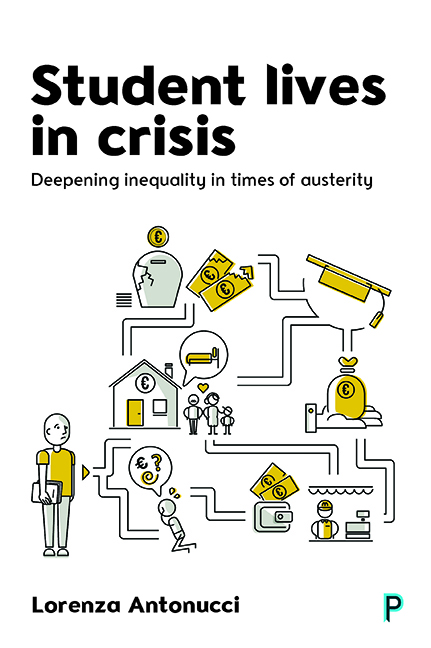Book contents
- Frontmatter
- Dedication
- Contents
- List of tables and figures
- List of acronyms
- Note on author
- Preface: A post-Brexit preface
- Acknowledgements
- Introduction: Young people’s lives at university in crisis
- Part 1 University for all? How higher education shapes inequality among young people
- Part 2 Exploring the inequality of university lives in England, Italy and Sweden
- Part 3 The ‘eternal transition’: young adults and semi-dependence in university
- Conclusion: Addressing growing inequality among young people in university
- Notes
- Annex
- Index
five - The different profiles of young people’s experiences in university
Published online by Cambridge University Press: 05 April 2022
- Frontmatter
- Dedication
- Contents
- List of tables and figures
- List of acronyms
- Note on author
- Preface: A post-Brexit preface
- Acknowledgements
- Introduction: Young people’s lives at university in crisis
- Part 1 University for all? How higher education shapes inequality among young people
- Part 2 Exploring the inequality of university lives in England, Italy and Sweden
- Part 3 The ‘eternal transition’: young adults and semi-dependence in university
- Conclusion: Addressing growing inequality among young people in university
- Notes
- Annex
- Index
Summary
In order to stress the diversity of young people's experiences in university, this chapter presents the distinctive elements of the five profiles found in my research. The profiles do not have to be understood as exhaustive descriptions of all young people's experiences in university; rather, they should be interpreted as ‘ideal-types’ of the young people's experiences, which help to identify how similar and how different those experiences are across socioeconomic backgrounds and welfare mixes. An ideal-type consists of a hypothetical model constructed to help us to interpret the reality. This has emerged from the way the young people sorted the 52 items so it is an empirically based ideal-type (please refer to the Annex for a discussion of the methodological rationale). The interviews with the most representative young people from each profile helped not only to describe the idealtypes in the real world, but also to explain the links between different aspects of young people's lives (in other words, they helped to solve the ‘puzzle’ emerging from each profile).
In this chapter the typology of the young people's experiences is discussed in relation to the four areas that (as argued in Part 1) shape how good or bad young people's experiences are in university: the economic or financial aspect, housing, wellbeing and education. One of the most important findings of this research is that, in order to understand the condition of young people in university, we need to consider two temporal levels: their condition in the present and their expectations about the future. The two levels are intertwined, as future projections influence young people's wellbeing while in university. As discussed in Part 1, transitions through university are framed as a form of social investment, and consequently the returns young people expect from university influence their conditions in the present. How ‘good’ or ‘bad’ an experience is in the present will also be the product of the young people's expectations, and stating this is also a way of challenging the ‘presentism’ of contemporary societies (thus the obsession with ‘living in the present’).
In order to better illustrate the inequality behind these young people's experiences, I have ordered the profiles from the most negative to the most positive, and I present below, in Table 3, a quick comparison of the four areas. Looking at the ‘outcomes’ of young people's experiences, we find one profile that is particularly negative.
- Type
- Chapter
- Information
- Student Lives in CrisisDeepening Inequality in Times of Austerity, pp. 75 - 106Publisher: Bristol University PressPrint publication year: 2016



